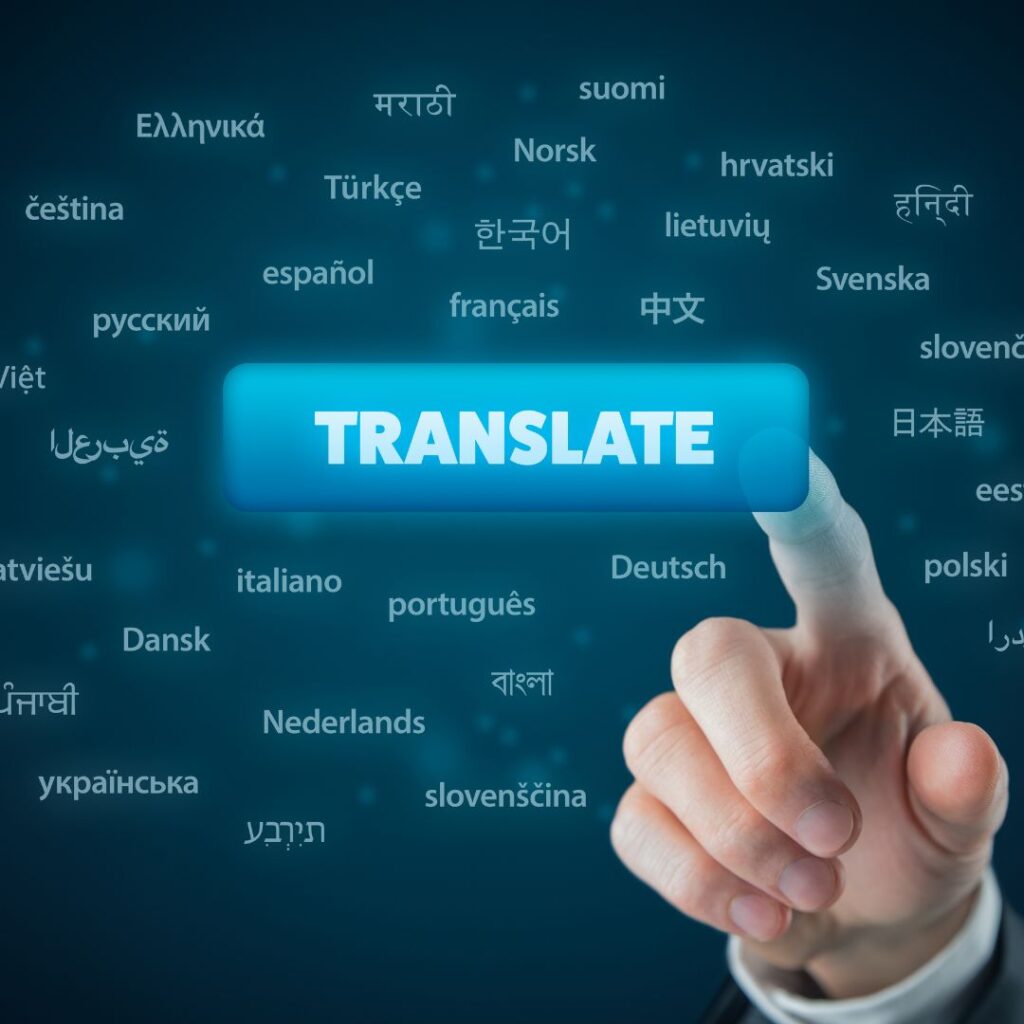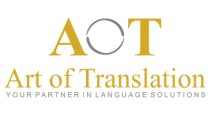The world is becoming increasingly interconnected, and the translation industry is booming. In 2022, the global language industry was estimated to reach 60 billion US dollars, according to Statista. Therefore, it’s a desirable market which counts a growing number of players, from professional providers to less scrupulous actors. What’s not helping is that the market’s regulations differ from country to country. And sometimes there are no regulations.
Getting translation services is about more than just about cost. It’s even more true nowadays. The prices range from one extreme to the other. The market is free, so $ can only be a reference. But, as a buyer of translation services, how can you find the best translation partner for your business? Let’s review the industry’s basics and some tactics to help you through the process.
Translation Agencies vs Translators
To better understand how the industry works, let’s first clarify the differences between a translation agency and individual translators.
Languages
Most translators will have one or two language pairs. A language pair is two languages they master and translate from one language into another, for example, English into Spanish. On the contrary, translation agencies will work with multiple translators and can provide services in more languages.
Expertise
Professional translators often specialize in one or two areas. They deeply understand cultural nuances and are well-versed with the industry-specific terminology needed in their field. Translation agencies have access to a large pool of specialized translators and can support you in more languages. Most translation agencies also specialize in different areas of expertise but with a larger talent pool.
Capacity
On average, a translator can translate between 2,000 to 3,000 words per day. Based on the volume of orders they have already accepted, they may be unable to take on a new project or provide the translation in your desired turnaround. As translation agencies work with a pool of translators, they can find an available translator and offer you the best turnaround possible.
Fun fact: There are 52,160 translators and interpreters in the US alone.
Translation Agency Standard Process
There is no standard definition of what translation is, and that’s probably why the industry is not highly regulated. Regarding work that can be considered “creative,” what’s good or not can always be debated.
However, there are standards or best practices widely followed throughout the sector. When working with a translation agency, the standard process goes like this:

Before the translation phase
The agency will receive the file requiring translation, discuss with the client what needs translation and collect any support documentation (style guide, translation memories, etc.). Based on that, it will establish a quote. The agency often plays a consulting role at this stage, guiding the client for their best interest (usually).
When a client has a long-term relationship with an agency, this phase is generally shorter because they will have done the pre-translation work over time.
Translation phase
The agency decides who will do the work based on their translator profiles and track records. The translator then translates the source text (the document in the original language) into the target language, ensuring accuracy and natural style. During this phase, the translator may ask questions to clarify specific points, and the agency will exchange with the client to help the translator produce the best translation. When the translator has fully finished the project, they send it back to the agency.
Two more steps can be added here, based on the initial agreement with the client:
- Editing: The agency can hire the services of another translator to compare the translation word-for-word with the source text and improve the style.
- Proofreading: Another translator can be asked to check the target language version only to verify that the document has no typos, grammar errors or unnatural formulations.
After the translation phase
The agency receives the final target language version and performs its quality checks [the QA process may vary from one agency to the other, so you may want to add this point to your checklist].
Depending on the original format, agencies will often take care of the document formatting, also called Desktop publishing (DTP), so the final document in the target language looks the same as the original one. With some line break adjustments, of course, because the length may vary from one language to another. Websites or software may need more work, and localization may involve other services, such as graphic design.
Note: These are general steps to give you an overview of what to expect when working with translation agencies. However, keep in mind that not all agencies are alike.
But what about the cost?
Regarding prices, shopping for translation services is comparable to shopping for any other type of service. If you see a price too low, you are suspicious of the quality, and if you see a price too high, you probably ask yourself if it’s worth it.
But we all have a budget, so here are a few tips to help you navigate this free market:

What does the rate include?
Does it include other services such as editing, proofreading, and formatting? When you have a few quotes from different agencies, calculate the per-word rate and compare the services provided. Hint: QA shall be included. Check the additional fees % added at the bottom of the quote.
Agency localization
The cost of running a business varies from one country to another. It includes rent, employees’ wages, utilities, etc. Hiring an agency in about the same time zone can be convenient for communications, for example.
Native speakers
Depending on the language pairs, the cost may vary. It can be because of the cost of living in the native country or the scarcity of professional translators in this language pair or this field of expertise.
Qualifications
There are no universal criteria to distinguish a qualified from an unqualified translator. Some countries have certification processes, while others don’t. Translators specializing in medical or engineering may charge higher rates due to their expertise and the required technical level. Without a standard, an agency can grant the title “qualified” to anyone. Transparency is critical, so ask who will do the work.
Outsourcing
Does the agency outsource some work and act as a simple agent? They may do so if they do not have the expertise. In that case, we’re adding an extra player. If you’re in a long-term relationship with an agency, they may do so to help you. If not, be careful, as there is a higher risk of miscommunication.
Note: The spectrum is broad when it comes to prices. Consider the language pair, the localization and the expertise required for your document translation as your benchmark.
Benefits of working with a translation agency
When your sink leaks, you may try to fix it yourself or ask a handyperson in your circle. But it’s often a quick fix, like putting a bandage on a leak… until things get worse! You would have been better off calling a plumbing company from the beginning! It may have cost you less!
With translation, it’s about the same! Between Google, a bilingual colleague, or your friend’s niece, it’s easy to take a shortcut for your document translation. But a translation is often your or your company’s voice in another language.

Ultimately, your credibility and reputation are at stake. That’s why you want to avoid taking shortcuts, but instead, build a strong relationship with a translation agency that will, over time, save you money and ensure a consistent brand voice.
While a professional translator can support your needs for one language pair, there are multiple benefits of working with a translation agency:
Access to multiple specialized translators
First, you may need services for only one language pair. Let’s say a manual translation [technical]. Then, your company wants to launch a campaign [marketing]. The product appears successful, so they want to sell it in another country. The manual and campaign must then be translated into another language. An agency can support you throughout the process because they have different expertises in their portfolio and access to a pool of translators.
QA process
Even the best translator is still a human. QA processes are crucial to ensure consistency and accuracy. While they may differ from one agency to another, agencies have systems to ensure your content goes through multiple eyes before coming back to you. So you can use it right away with confidence.
Consistent terminology
Consistent terminology is already crucial in your native language because it prevents your stakeholders from getting confused and shapes the image you’re giving. The same applies in another language. Agencies will work with you to build term base and translation memory to ensure consistency between translators. So, you speak the same voice from one project to another.
Time and Cost Savings
All the above benefits will save you time and costs. First, working with an agency allows you to have one point of contact for multiple translation projects. Instead of spending half a day sourcing different translators, you can make a phone call, and the agency will handle it. That’s time you will save. Building consistent terminology will facilitate the work of the translators and simplify the QA process. These two factors will bring down the cost of each future project. And shorten the turnaround.
Special note: The cost is generally calculated per word for translation services only. New words are charged at 100% of the rate, while words with some correspondence in the existing TM are discounted. When an agency has recorded previous translations in memory, translators can reuse it when the new content matches the already translated content. For editing and proofreading services, agencies may charge per word or hour.

Finding a translation agency
Did you know that, in the US alone, there were 71,469 Translation Services businesses in 2022? (Data from IBIS World). So, finding your translation partner may seem like looking for a needle in a haystack.
Translation is a challenging task. That’s why choosing the right language service provider for your translation needs takes work. Because we know this fact very well, we gathered a few points to consider when looking for a translation agency.
Established business based on people
We have new technologies that make our process faster and smoother. But translation is about communication. And the essence of communication is human. Machines cannot capture the nuances and the cultural subtilities humans insert in their content. When looking for a translation agency, ensure they work with human translators because you want your document to sound natural in your target language.
And double-check that they are an established business. Many players are in the game, but not all have your best interest in mind. You want a trustworthy partner with proven records and not an illegitimate company that will ghost you if something goes wrong.
Note: Some agencies have ISO and other certifications or accreditations. And some claim to have them. Always ask for more details as they may not be relevant to the translation quality. What all agencies should have is insurance.
Translation as the agency’s core business
Even if some all-in-one packages seem attractive, translating requires specific skills. Not everyone can perform translations. The agency needs to specialize in translation to fulfill your needs and guide you toward the best solutions for your company.
Translation project management requires some processes that ensure quality and efficiency. Staffing or business services companies may offer translation services in their portfolio. But it’s often a tiny part of their activities, and they probably outsource it, which increases the risk of miscommunication and decreases the likelihood of robust QA processes.
Industry specialization
The translation sector spans across a wide array of industries. But, like no one can become an expert in everything, translation agencies can only be experts in some sectors. Therefore, your right partner will need to have expertise in your industry. This criterion will help you reduce the number of potential agencies you could work with.
An excellent way to verify if a translation agency has experience in your field is to ask for a client reference or case study. Proven records will provide peace of mind that you will meet your objectives in your target language.
Approach to vetting translators
As we saw earlier, universal standards to determine who is a qualified translator do not exist. In some countries, certifications and associations may be a good indicator. But it’s not true everywhere in the world.
Therefore, you must ask how an agency vets their translators. A good agency will be transparent about their approach and offer to show their translators’ resumes. Just be aware that a good resume with low rates may be a scam.
Confidentiality
You don’t want your competition to learn about your last innovation before launching it. We understand. That’s why a good translation agency should have a secure workflow and get all their translators to sign an NDA. Ask about it.
It is even more true nowadays with AI. AI tools, especially their free version, are unreliable. There are many privacy concerns. The platform may reuse the information entered into the AI tool. Another point to keep in mind!
QA process
We already talked quite a lot about QA processes, but it’s a crucial point to verify when looking for a translation agency. It’s your peace of mind, even if you have an internal linguist. You hire a translation agency to get an accurate translation that is loyal to the quality of your original document. Plus, QA processes aim to ensure you get an accurate translation that is faithful to the quality of your original document. It’s a crucial and non-negotiable point to check when looking for a translation agency!
Your language services needs
Finally, the first and last thing to consider when narrowing down the potential candidates is your needs. Which language pairs do you require? What is your industry? What type of content will need translation? How frequently do you need documents translated? And what is your budget?

Note: AOT is a boutique translation agency that provides language services with a personal approach. Human is at the core of our business because we can best fulfill your needs by establishing solid relationships with our clients and expert translators. And therefore, achieve your goals. The success of our clients is our satisfaction.
References
https://www.linkedin.com/pulse/benefits-working-translation-agency-filipe-tiago-stankovic/
